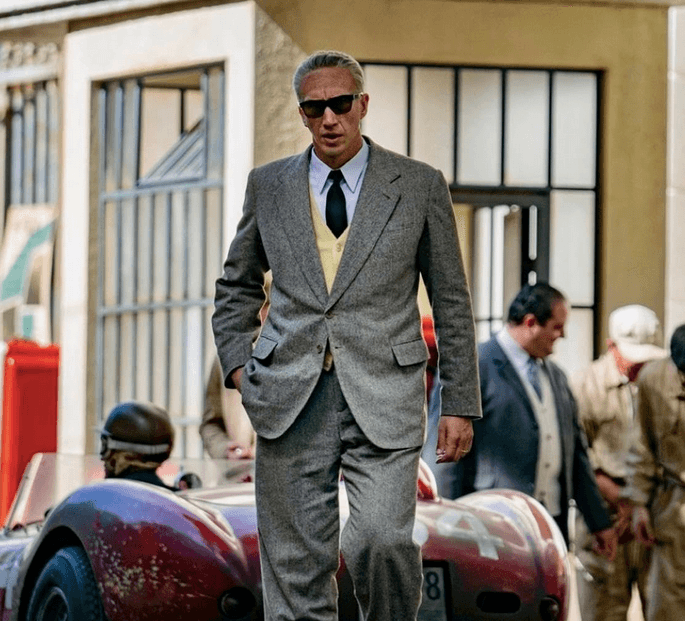I love the sound of powerful motors. Revving V-8 and V-Twin engines are music to my ears. However, the roar of the 355 horsepower 1957 Ferrari race car, in Michael Mann’s “Ferrari,” slamming through gear changes, on the track and through the Italian countryside, was like an Italian operatic version of a few of my favorite sounds. I basked happily in it.
‘Ferrari’: Life and Times of Legendary Racer and Automaker
The life of Enzo Ferrari, fêted car racer and builder, is masterfully captured by director Michael Mann and lead actor Adam Driver.

Enzo Ferrari (Adam Driver, far left) in "Ferrari." Neon





